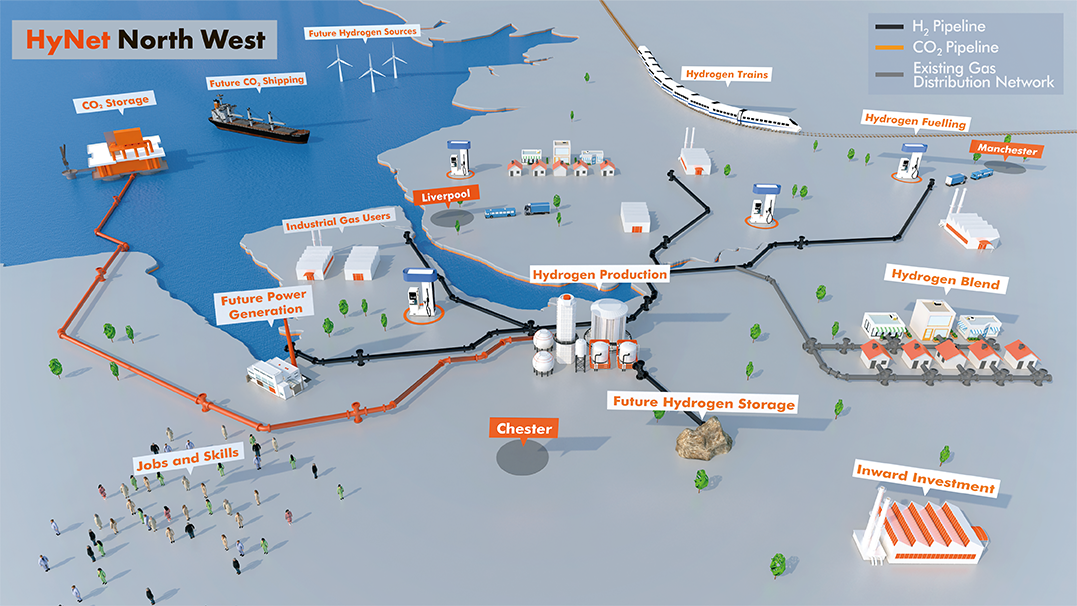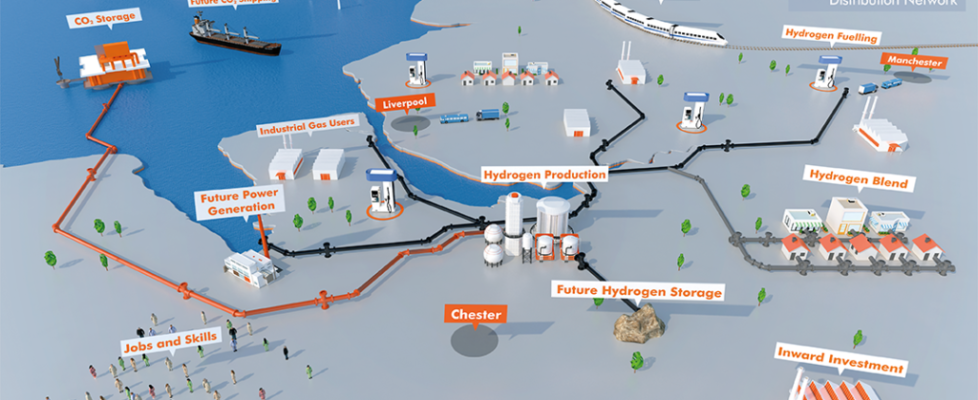
BLOG: CO2 Storage Licence for Liverpool Bay
Early in October the HyNet project took a significant step forward with the announcement of the award of a Carbon Dioxide (CO2) storage licence for Eni.
HyNet is an integrated, full-chain hydrogen and carbon capture and storage (CCS) project that aims to transform the energy landscape of NW England and North Wales. It will decarbonise energy intensive industry across the region through a combination of direct emissions capture and fuel switching to low carbon hydrogen. The project has been in development for 4 years, initially through early stage feasibility studies, but is now gathering momentum into the deployment phase as front-end engineering and consenting activities commence.
The HyNet project requires a number of permits, consents and licences from various regulators to allow it to be constructed and operated. These range from a Development Consent Order (DCO) for the newbuild section of onshore pipeline, to environmental permits for the capture plants to a storage permit for the offshore sequestration of CO2.
The storage permit is awarded by the Oil and Gas Authority (OGA) after a period of comprehensive engineering assessment, which considers both the operational and post-operational phases of the project. The precursor to the permit is the award of a licence, which provides the awardee the rights to undertake the work required to secure a permit.
Eni applied for the licence in late 2019 for an area located within the Liverpool Bay area of the East Irish Sea, and, following a period of assessment, licence CS004 was duly awarded on October 8th. Eni plans to permanently store the CO2 captured in NW England and N Wales by the HyNet project in depleted offshore hydrocarbon reservoirs in Liverpool Bay. The licence will allow Eni to explore reusing and repurposing of its current infrastructure and hydrocarbon reservoirs (the Hamilton, Hamilton North and Lennox fields), once the fields have reached the end of their economic lives.
This award is of fundamental importance to the development of a hydrogen economy in the NW and N Wales, as a CCS network underpins the ability to produce low carbon hydrogen rapidly and at scale and low cost.
In parallel with the announcement of the storage licence, the HyNet project has embarked on the first phase of consultation on pipeline routing to support site access for ecology surveys. Further information on this process, including the newly released HyNet Vision document can be found on the project website at https://hynet.co.uk
By Dave Parkin, HyNet Project Director, Progressive Energy

